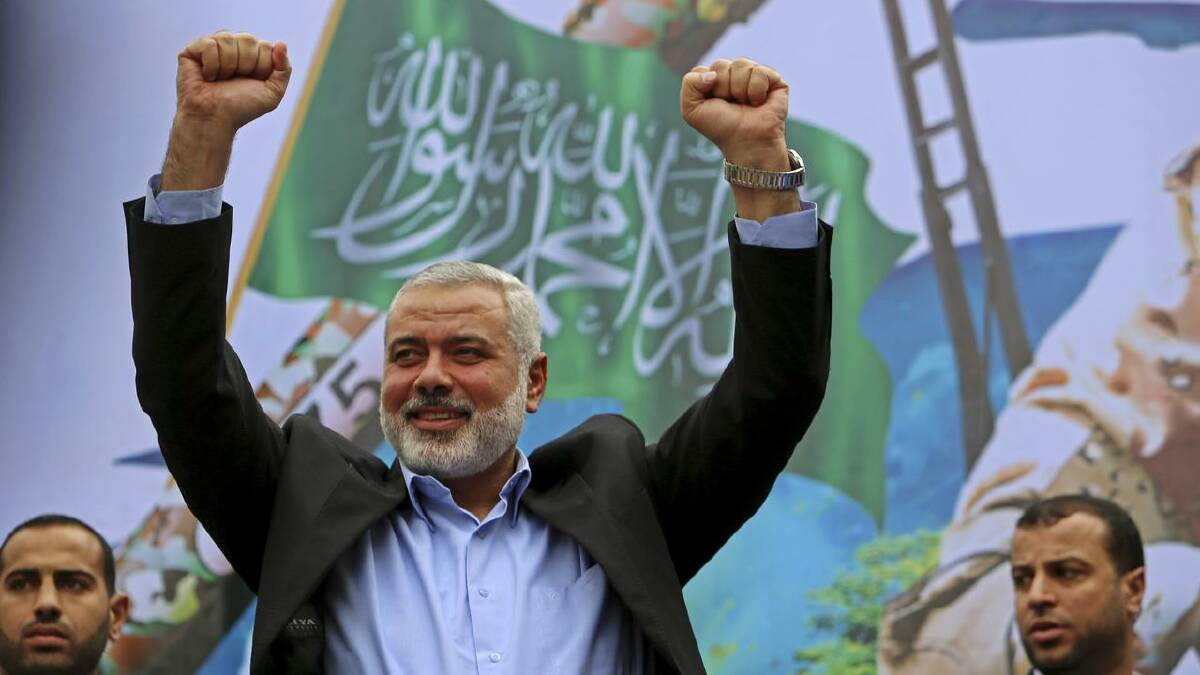Ismail Haniyeh, the Hamas leader who was killed in Iran, was known for his strong rhetoric as the public face of the Palestinian group’s international diplomacy, all while conflict continued in Gaza, where three of his sons were killed in an Israeli airstrike.
Despite his tough talk, many diplomats considered him to be a moderate in comparison to the more hardline members of the Iran-backed group in Gaza.
Ismail Haniyeh, born in al-Shati, a Gaza refugee camp in 1962, succeeded Khaled Meshaal as head of the Hamas political bureau in 2017. He was already a well-known figure, having served as the Palestinian prime minister in 2006 following Hamas’s unexpected victory in that year’s parliamentary election.
In 2007, the power-sharing agreement with the Fatah movement led by Palestinian President Mahmoud Abbas fell apart, and Hamas gained full control of the Gaza Strip after violently removing the president’s supporters. Haniyeh, known for his calm demeanor, lived in exile, splitting his time between Turkey and Qatar. In his youth, he was a member of the student branch of the Muslim Brotherhood at the Islamic University of Gaza
In 1987, he joined Hamas when the militant group was established during the first Palestinian intifada, or uprising, against Israeli occupation, which lasted until 1993. During that period, Haniyeh was imprisoned by Israel several times and later expelled to south Lebanon for six months.
Sons killed in airstrike by Izrael.
On April 10, three of Haniyeh’s sons – Hazem, Amir, and Mohammad – were killed in an Israeli air strike that targeted the car they were driving, according to Hamas. Additionally, Haniyeh lost four of his grandchildren in the attack – three girls and a boy, as reported by Hamas.
Haniyeh refuted Israeli claims that his sons were associated with the group, stating, “the interests of the Palestinian people are placed ahead of everything” when questioned about the potential impact of their deaths on truce negotiations.
Arab diplomats and officials considered him relatively pragmatic despite public harsh language. This was compared to hardline voices within Gaza, where the military wing of Hamas planned the October 7 attack.
During negotiations for a ceasefire deal with Israel, the current and former leaders of Hamas, Ismail Haniyeh and Khaled Meshaal, traveled around the region as part of Qatar-brokered talks. The proposed deal would involve exchanging hostages for Palestinians in Israeli jails and providing more aid for Gaza.
Israel considers the entire Hamas leadership as terrorists and has accused Haniyeh, Meshaal, and others of continuing to “pull the strings” of the Hamas terror organization.
The extent of Haniyeh’s knowledge about the October 7 attack beforehand is unclear. The plan, devised by the Hamas military council in Gaza, was kept so secret that some Hamas officials appeared surprised by its timing and magnitude.
Yet Haniyeh, a Sunni Muslim, played a significant role in building up Hamas’ fighting capacity, partly by fostering connections with Shia Muslim Iran, which openly supports the group.
During the decade in which Haniyeh was the top leader of Hamas in Gaza, Israel accused his leadership team of diverting humanitarian aid to the group’s military wing. Hamas denied the accusations.
with Al Arabiyya




